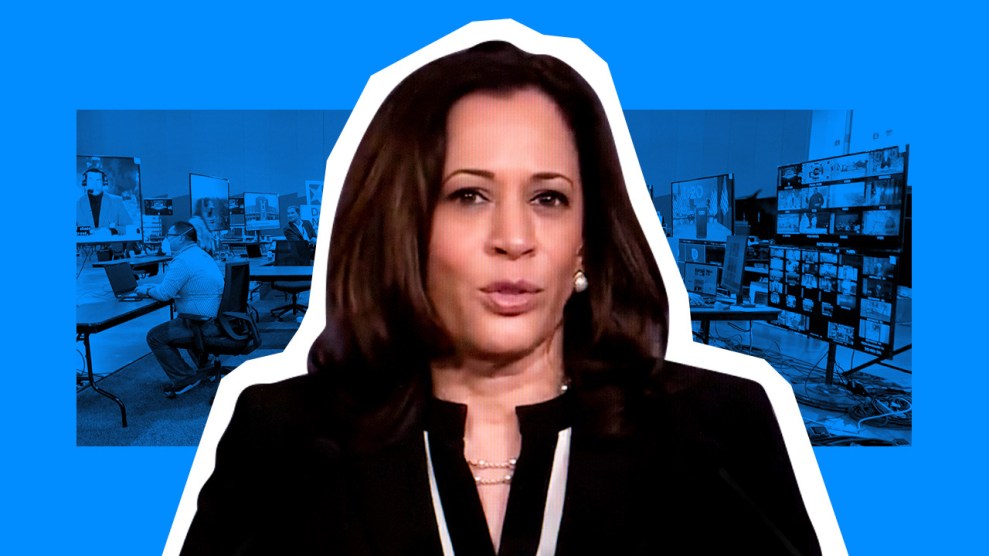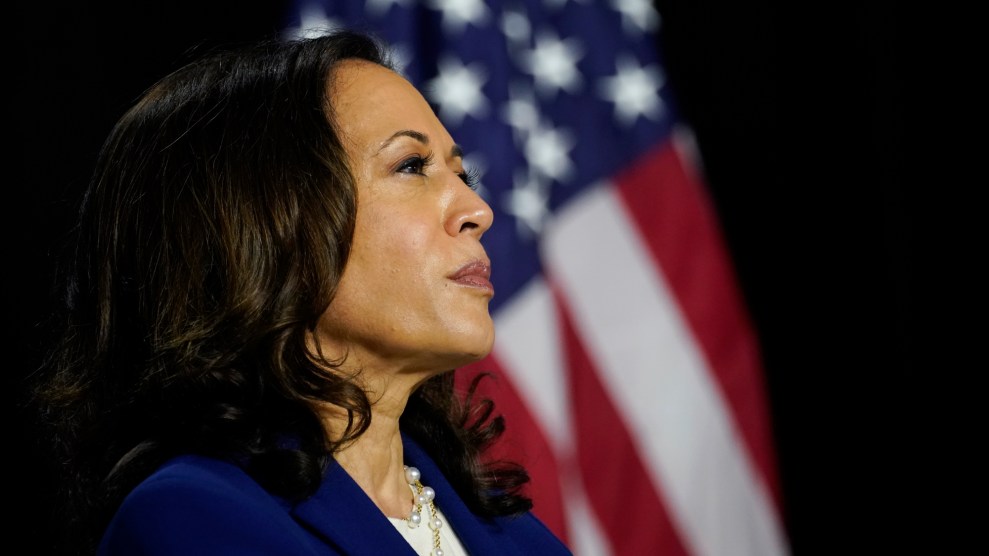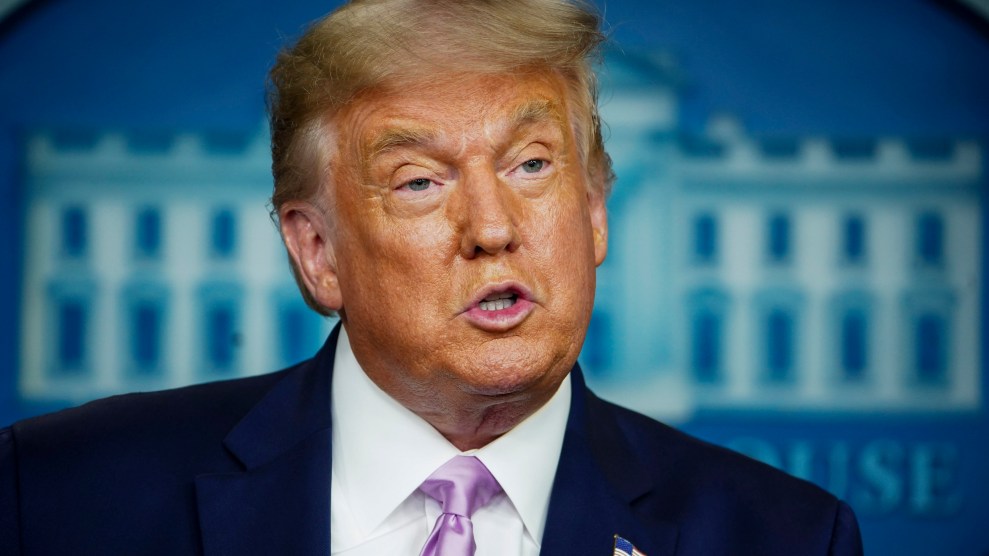Meet Kamala Harris, the person.
That was the overriding message of Sen. Kamala Harris’ speech on Wednesday night to accept the nomination for vice president at the Democratic National Convention. It was a historic moment, and one carefully designed to unify the left around Harris’ biography—instead of focusing strictly on a resume that sowed deep dissension on the progressive left during the democratic primary when she ran for president.
In a video montage, people close to Harris described the side of her the public doesn’t see: the always-protective older sister; the barrier-breaking auntie; she spaghetti-making stepmom, nicknamed “Momala.”
Harris, who earlier this year told the New York Times that she wants “relevant policy, not a beautiful sonnet,” delivered her own brand of poetry on Wednesday night. “This virus has no eyes, but it knows how we see each other,” she said. “There is no vaccine for racism…we have to do the work.”
It was easily the most important moment of Harris’ political career to date, and she seized it. While detailing her history of prosecuting sex crimes, she said of Donald Trump, “I know a predator when I see one.” She called out structural racism and referenced the historic protests against police violence.
“That I am here tonight is a testament to the dedication of generations before me,” she began, as she chronicled her experience as the daughter of immigrants who met in college during the civil rights movement in Berkeley, California.
This wasn’t Harris’ first time on the main stage of the Democratic National Convention. In 2012, she had a prominent, but not starring, slot in which she talked about how she was leading the state of California out of the foreclosure crisis.
This time around, she made her case not just for how she might lead on a national stage, but what propels her—and why. It was a departure from Harris’ usual buttoned-up style—she’s more comfortable discussing the finer points of proposed policy instead of the human side of it. On the world’s stage, Harris finally made a compelling case for herself—and her leadership.
“Years from now, this moment will have passed. And our children and our grandchildren will look in our eyes and ask us: Where were you when the stakes were so high?” she said. “And we will tell them. We will tell them, not just how we felt. We will tell them what we did.”

















